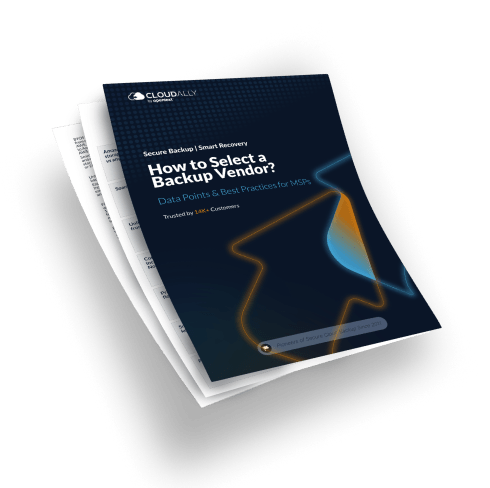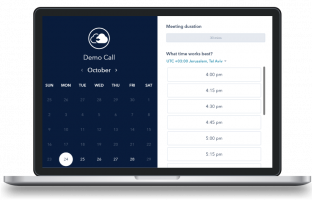What is Data Deduplication?
Data deduplication, also known as “dedupe” for short, is a method of reducing the amount of data stored in backup systems by eliminating duplicate copies of the same data. This process involves identifying and removing identical pieces of data within a storage system, resulting in significant space savings. Traditionally, when a backup is performed, all files are scanned and backed up regardless if they have previously been backed up or not. This leads to redundant copies of the same data being stored multiple times, consuming valuable storage space and increasing costs.
With data deduplication, only unique data is stored during each backup. The system compares new data against existing data that has already been backed up and identifies any duplicates. Instead of storing multiple copies of the same data, only the unique pieces are stored, resulting in significant storage savings. Not only does data deduplication save storage space and costs, but it also improves backup and recovery times. Since only unique data is being backed up, the process is much faster and more efficient. In the event of a disaster or data loss, recovery times are also improved as there are fewer files to restore.
In addition to these benefits, data deduplication can also improve network performance. With less data being transferred during backups and restores, network bandwidth is conserved, allowing for smoother operations and reduced strain on the network. Furthermore, implementing data deduplication can enhance overall system reliability. By reducing the amount of duplicate data being stored, there is less risk of errors.
Advantages of Data Deduplication
Some advantages of Data Deduplication include:
- Reduced Storage Costs – By eliminating redundant data, organizations can save money on storage costs. This is especially beneficial for businesses with large amounts of data to manage.
- Improved Backup and Recovery – As mentioned earlier, data deduplication speeds up the backup and recovery process by only backing up unique data and reducing the amount of data that needs to be restored.
- Increased Network Performance – By reducing the amount of data being transferred over a network, data deduplication can improve network performance and reduce bandwidth usage. This is especially beneficial for remote offices or employees who may have limited internet access.
- Enhanced System Reliability – By reducing the risk of errors caused by duplicate data, overall system reliability is improved.
- Scalability – Data deduplication technology is scalable, meaning it can handle large amounts of data and grow with your business as your data grows.
- Cost Savings – With less storage space required, businesses can save on both hardware costs and operational costs associated with managing and maintaining large amounts of data.
- Disaster Recovery – In the event of a disaster or data loss, having efficient backup and recovery processes in place is crucial. Data deduplication ensures that only unique data needs to be restored, saving time and resources during the recovery process.
- Compliance and Data Governance – For businesses in industries such as healthcare or finance, compliance regulations often require the retention and secure storage of large amounts of data. Data deduplication can help businesses meet these requirements by reducing storage costs and providing efficient backup and recovery processes.
Best Practices to Implement a Data Deduplication Backup Strategy
- Understand your data – Before implementing a data deduplication backup strategy, it’s important to understand the type of data you are dealing with. This includes knowing the size and frequency of data changes, as well as understanding any compliance regulations that may apply.
- Determine the appropriate level of deduplication – There are different levels of data deduplication that can be implemented based on business needs. These include file-level deduplication, block-level deduplication, and byte-level deduplication. Determining which level is most suitable for your data will help maximize storage savings and minimize backup time.
- Consider both hardware and software options – Data deduplication can be achieved through both hardware solutions such as storage appliances or software solutions that can be installed on servers or virtual machines. It’s important to evaluate both options and choose the one that best fits your organization’s needs.
- Choose a reliable solution – When it comes to data deduplication, reliability is key. Make sure to thoroughly research and compare different solutions before making a decision. Look for features such as automatic error correction, data verification, and support for multiple backup software systems.
- Test before implementation – Before fully implementing a data deduplication solution, it’s important to test it out first. This will help identify any potential issues or compatibility problems before they affect your production environment.
- Monitor and maintain regularly – Data deduplication requires ongoing monitoring and maintenance to ensure its effectiveness over time. Regular
Secure your Data with CloudAlly’s Data Deduplication Backup
CloudAlly offers enterprise-grade data deduplication backup that is secure, reliable, and cost-effective. CloudAlly’s solutions back up data using automated incremental backup once a day (that can be increased based on your preference). These are the advantages of CloudAlly’s incremental SaaS backup with data deduplication:
- As with every incremental backup we only store the delta changes, backups are faster. It also helps us to index the data better leading to faster granular or point-in-time item-level recovery.
- As our backups are stored on high-performance Amazon S3 storage, we subvert the slow recovery typically associated with traditional incremental backup.
- Our backup and recovery workflows are also designed to limit API calls thus improving backup scalability and enhancing security.
- Incremental backups, lastly, but surely not the least, reduce storage space leading to cost savings.
- Our secure cloud platform uses advanced encryption methods to protect your data from unauthorized access.
Secure all your SaaS data Microsoft 365, Google Workspace, Salesforce, Dropbox, and Box including Groups, Teams, OneDrive, SharePoint -with data deduplication AWS S3 backup.
Book a quick demo now or Schedule a free 14-day trial and never face cloud data loss again!










